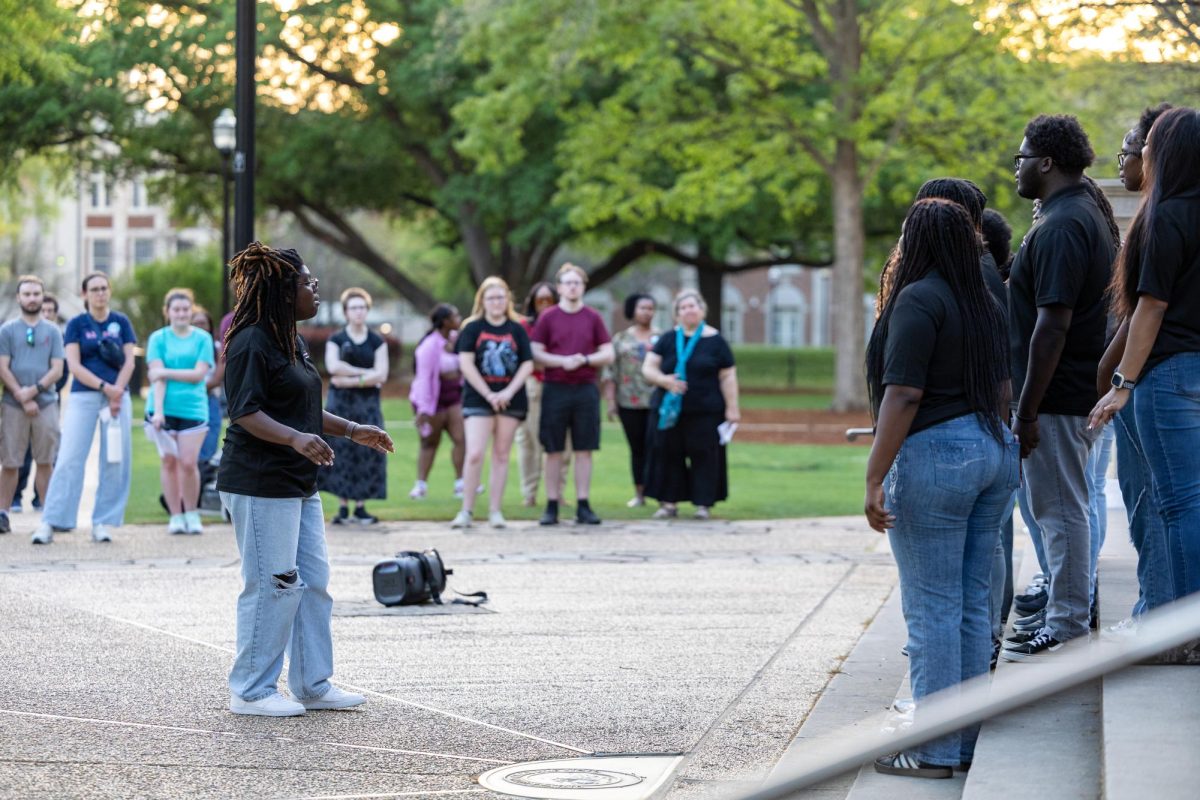When members of Greek organizations become initiated, they join a brotherhood, a sisterhood and a new set of rules. These rules often concern how members present themselves. Organizations often set precautions to uphold the name the founders and following members spent so long developing, leaving media commentary in the hands of the higher ups in their respective organizations as public representatives.
“Most, if not all international fraternities and sororities have guidelines regarding interactions with the media,” said Kathleen Gillan, director of the Office of Fraternity and Sorority Life via email. “These policies, which vary from organization to organization, also typically specify who is an official spokesperson and can speak on behalf of the organization as well as how media requests and interviews are approved.”
Negative associations about Greek life has made some sororities and fraternities refuse to comment to the media. Members who do speak out are often trained on how to correspond and positively represent their group.
“What is portrayed [in the media] is not always as positive, such as the fundraising and philanthropy we serve,” said Taylor Lee, President of the Sigma Delta Tau sorority. “If anyone would approach a member about philanthropy and our community, I think that members could relay that information well and with accuracy about the relationships we build, the community we support, and how the campus prospers from our involvement.”
Jackson Britton, former president of the Kappa Alpha fraternity said words can be taken out of context and easily twist the reputation and image of organizations. As such, he said, younger members are warned to be cautious with their words in case they are presented with the opportunity to speak to the media.
“Personally speaking, I’ve certainly had experiences where I have spoken to the media in the past and my words have been twisted, used against me in the context of the conversation that’s not really what I meant at all and that was taken out of context,” Britton said. “It’s more of being wary about what you say just to make sure that your words don’t come off the wrong way more so than limiting speech and saying ‘Don’t talk to them.’”
Still, members say these restrictions placed on them through rules both written and unwritten challenge the ability of its members to express individual interests and opinions. Sisters and brothers are told how to present themselves through their actions and through social media.
“I am no longer in a Greek organization but when I was, there was a lot of emphasis on keeping clean social media,” said a source who wished to remain anonymous because of safety concerns. “We had all kinds of workshops on a personal brand and what it looks like.”
Alex Smith, a senior political science major, said once you join a Greek organization, that group becomes your “label.”
“Once you have that label, you can’t speak out about things that you believe or certain ideas that you may have,” Smith said. “In a sense, you no longer have your singular voice; it becomes a group voice. The bigger the sororities and fraternities get, they definitely stress that you need to be sure that you are not speaking out on things that are representative of the chapter or that could reflect badly on the chapter… I think that creates pressure within these groups for people to stay silent.”
Some members who foster independent beliefs and political views said they are fearful demonstrating those views, as their actions could have potential negative repercussions if chapter executives are informed.
“When I was very young in my sorority, I went to a pride parade and they had the news there,” the anonymous former sorority member said. “I was terrified of being caught filmed there. Not that I wasn’t proud of being there, I just didn’t know what the reaction would be, how far they would go to enforce the law.”
She said being outspoken within the organization can be as dangerous as speaking out to the media, in terms of reprimand and punishment from the heads of the organization and fellow members.
“I would speak freely about XYZ and I would have girls who would trash me in my pledge class GroupMe or they would send me really angry emails,” the anonymous former sorority member said. “There was the bullying side and then there was also the side of girls messaging me saying, ‘Thank you for saying that, I believe that too, but I was scared to say anything because I didn’t want to get in trouble.’”
Smith said she understands wanting to protect chapter secrets, rituals and information that comes with membership and initiation, but she doesn’t understand why members are asked to keep quiet about things that don’t concern the chapter.
“By joining these organizations, you inherently lose your freedom of speech to some degree,” Smith said. “As someone who has been a part of a sorority and has felt like my free speech has been stifled, it’s something that I think these organizations should really work to remedy.”
Editor’s Note: This story quotes a source anonymously due to safety concerns.









